
A pioneer movement is an organization for children operated by a communist party. Typically children enter into the organization in elementary school and continue until adolescence. The adolescents then typically join the Young Communist League. Prior to the 1990s there was a wide cooperation between pioneer and similar movements of about 30 countries, coordinated by the international organization, International Committee of Children's and Adolescents' Movements, founded in 1958, with headquarters in Budapest, Hungary.

Act Now to Stop War and End Racism (ANSWER), also known as International A.N.S.W.E.R. and the ANSWER Coalition, is a United States–based protest umbrella group consisting of many antiwar and civil rights organizations. Formed in the wake of the September 11th attacks, ANSWER has since helped to organize many of the largest anti-war demonstrations in the United States, including demonstrations of hundreds of thousands against the Iraq War. The group has also organized activities around a variety of other issues, ranging from the Israel/Palestine debate to immigrant rights to Social Security to the extradition of Luis Posada Carriles.

Young Turks was a political reform movement in the early 20th century that favored the replacement of the Ottoman Empire's absolute monarchy with a constitutional government. They led a rebellion against the absolute rule of Sultan Abdulhamid II in the 1908 Young Turk Revolution. With this revolution, the Young Turks helped to establish the Second Constitutional Era in the same year, ushering in an era of multi-party democracy for the first time in the country's history.

Walking Together was a Russian youth movement that was created by Vasily Yakemenko in May 2000. The group, which had over 50 thousand members as of January 2002, was strongly pro-Putin and is openly endorsed by President Vladimir Putin's administration. It has strict rules and indoctrination methods, and was openly criticized for its similarity to the Soviet Young Pioneers established by the Communist Party in 1922. The senior patron of the movement was Vladislav Surkov, the deputy head of the presidential administration. The group was transformed into "Nashi" (Ours) youth group in 2005 after a scandal involving the dissemination of pornography.

Youth activism is the participation in community organizing for social change by persons between the ages of 15–24. Youth activism has led to a shift in political participation and activism. A notable shift within youth activism is the rise of “Alter-Activism” resulting in an emphasis on lived experiences and connectivity amongst young activists. The young activists have taken lead roles in public protest and advocacy around many issues like climate change, abortion rights and gun violence. Different from past protest or advocacy, technology has become the backbone to many of these modern youth movements. It has been shown in multiple studies that internet use along with seeking information online is shown to have positive impacts on political engagement. Popular applications like Twitter, Instagram and YouTube have become the newest tools for young activists in the 21st century. Technology and the use of digital media has changed the way youth participate in activism globally, and youth are more active in media than older generations.
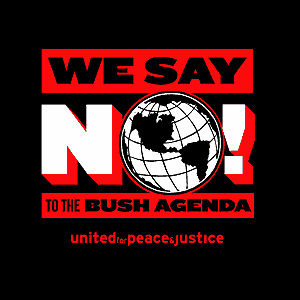
United for Peace and Justice (UFPJ) is a coalition of more than 1,300 international and U.S.-based organizations opposed to "our government's policy of permanent warfare and empire-building."
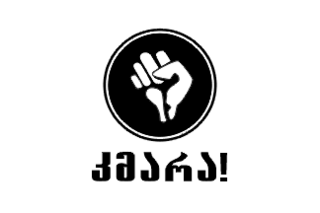
Kmara was a civic youth resistance movement in Georgia, active in the protests prior to and during the November 2003 Rose Revolution, which toppled down the government of Eduard Shevardnadze. Consciously modeled on the Serbian nongovernmental organization (NGO) Otpor!, which had been instrumental in defeating Slobodan Milošević's regime in 2000, the Kmara members were trained and advised by the influential Georgian NGO Liberty Institute and funded by the United States-based Open Society Institute (OSI). The movement was a hybrid of social movement and virtual NGO, which was highly successful in mobilizing the young Georgians, mostly students, against Shevardnadze's rule. Although Kmara was allied with the opposition parties, especially Mikheil Saakashvili's United National Movement, its behavior and tactics were nonpartisan, focusing on criticizing corruption and failures of the Shevardnadze regime, rather than promoting any particular politician or political party.

Sahra Wagenknecht is a German politician, economist, author, and publicist. Since 2009, she has been a member of the Bundestag for The Left. From 2015 to 2019, she served as the parliamentary co-chair of her party.
The People's Movement of Ukraine is a Ukrainian political party and first opposition party in Soviet Ukraine. Often it is simply referred to as the Movement. The party under the name Rukh was an observer member of the European People's Party (EPP) until 2013. It is considered to have played a key role in Ukraine regaining its independence in 1991.
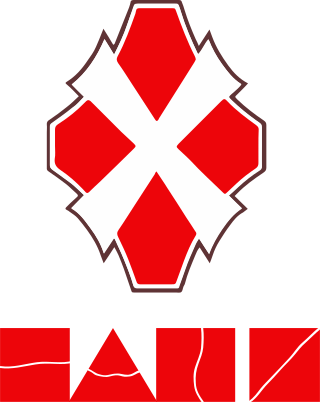
Nashi was a political youth movement in Russia, which declared itself to be a democratic, anti-fascist, anti-"oligarchic-capitalist" movement. Nashi was widely characterized as a pro-Putin outfit, with the Bureau of Investigative Journalism describing it as "Putin's private army". Western critics have detected a "deliberately cultivated resemblance to" the Soviet Komsomol or to the Hitler Youth and dubbed the group "Putinjugend".

Power Shift Network is a North American non-profit organization made up of a network of youth-led social and environmental justice organizations working together to build the youth clean energy and climate movement. It runs campaigns in the United States and Canada to build grassroots power and advocate for tangible changes on climate change and social justice at local, state, national and international levels in North America. The organization changed its name from Energy Action Coalition in July 2016 in order to reflect its new leadership and it shift from a coalition to a network structure. The Power Shift Network's members, which include other non-profit organizations and student groups focused on environmental justice, social justice, and climate change, focus their organizing and campaigns on campuses, communities, corporate practices, and politics. The Power Shift Network is part of the Global Youth Climate Movement.
Maksim Nikolayevich Mishchenko is a Russian politician, deputy of the State Duma, founder and leader of the youth movement Young Russia.

The Uhuru Movement is an American-based socialist and African internationalist movement founded in 1972 and led by the African People's Socialist Party (APSP), whose chairman is Omali Yeshitela. It is centered on the theory of African internationalism, which it says provides a historical materialist explanation for the social and economic conditions of African people worldwide.
The Daegu Democracy Movement broke out February 28, 1960, ahead of the March 1960 South Korean presidential election during the period of Syngman Rhee's government, in resistance against his Liberal Party's dictatorship. After this movement, the 3.15 Masan democracy movement broke out, and the Daegu Democracy Movement became the main cause of the April Revolution.

The 2011–2013 Russian protests, which some English language media referred to as the Snow Revolution, began in 2011 and continued into 2012 and 2013. The protests were motivated by claims of Russian and foreign journalists, political activists and members of the public that the election process was fraudulent. The Central Election Commission of Russia stated 11.5% of official reports of fraud could be confirmed as true.
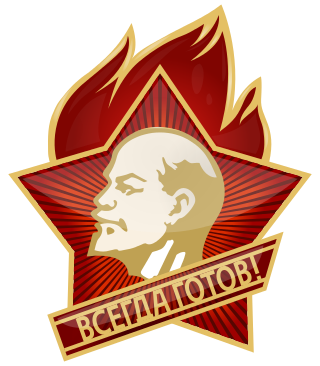
The Vladimir Lenin All-Union Pioneer Organization, abbreviated as the Young Pioneers, was a compulsory youth organization of the Soviet Union for children and adolescents ages 9–14 that existed between 1922 and 1991.
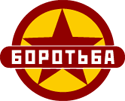
The Association "Struggle" was a left-wing organization operating in Odesa, Kharkiv, Kyiv, and Dnipro in Ukraine.
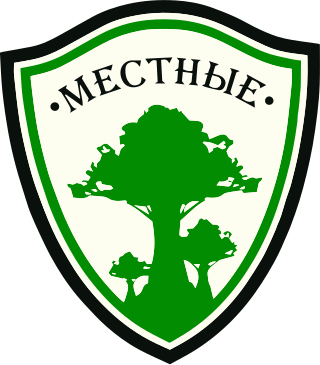
Mestnye is a Russian political movement of young ecologists that was formed on October 19, 2005. Its full description in Russian is Движение молодых политических экологов "Местные". The Locals are a Kremlin project created to oversee independent ecological movements such as the Baikal Movement and Green Russia.














